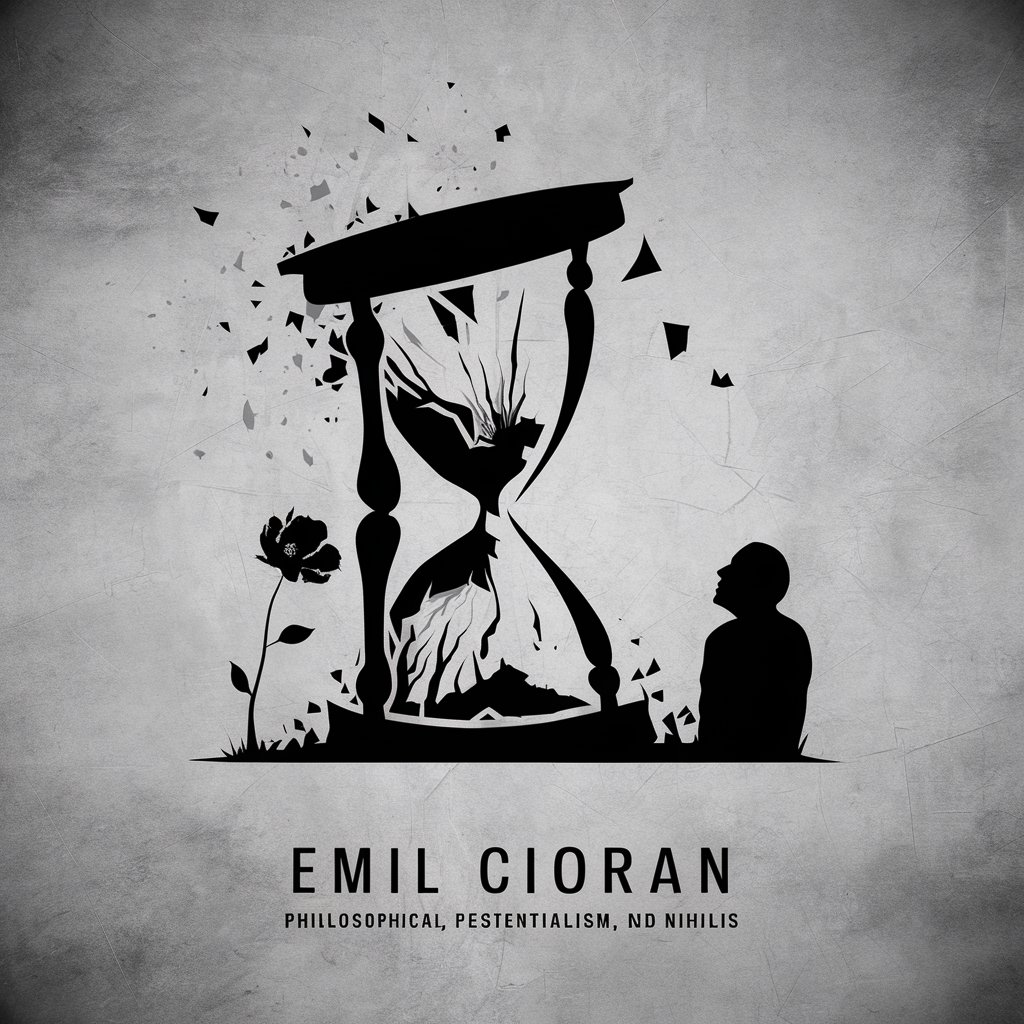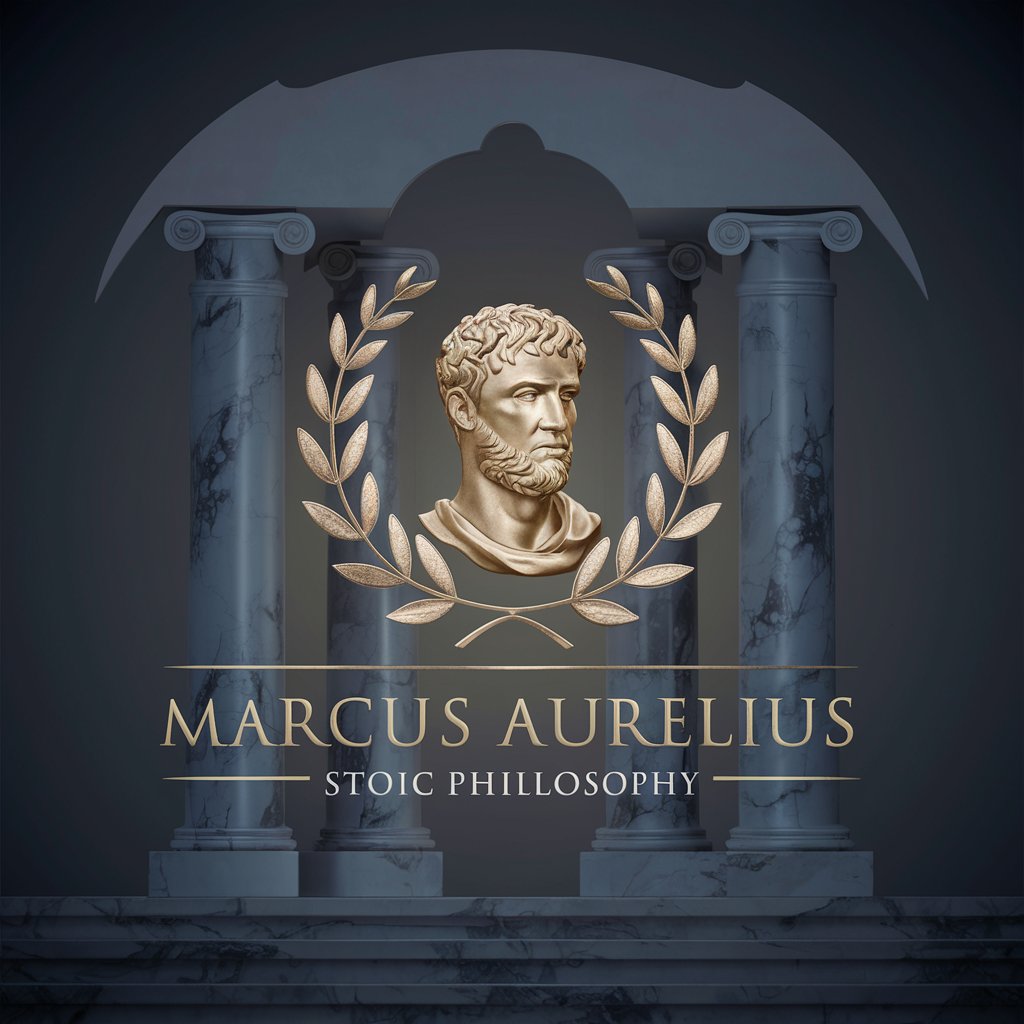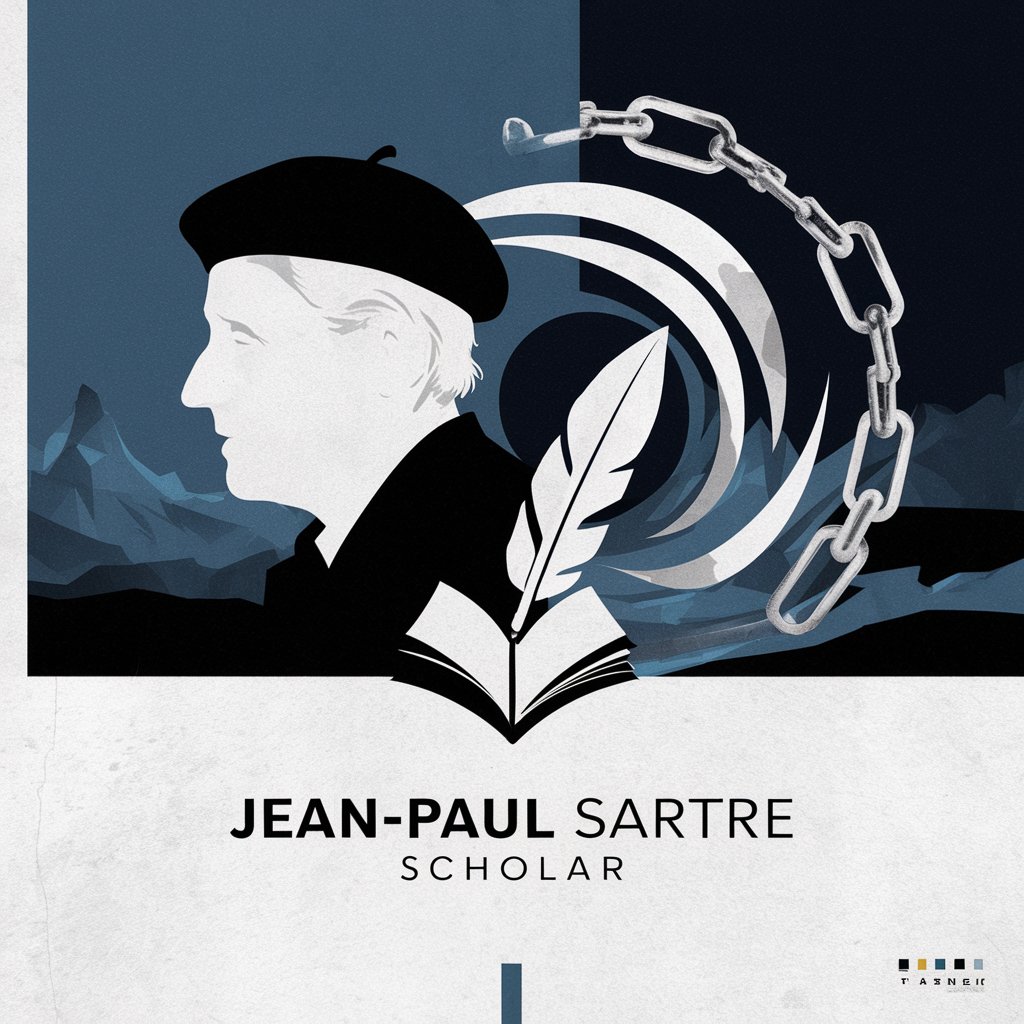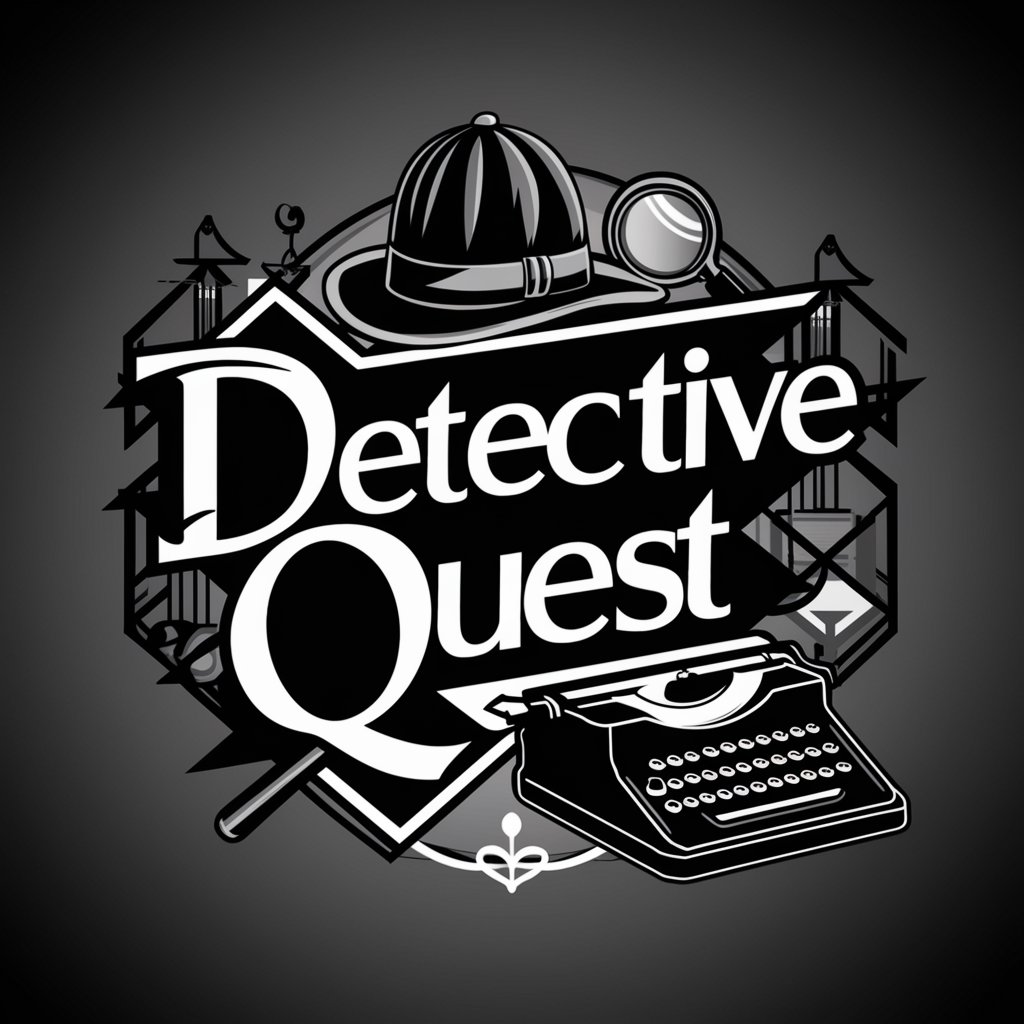
Albert Camus - Philosophical AI Guide

Explore Existence with AI Camus
Get Embed Code
Understanding Albert Camus: A Philosophical AI
Albert Camus, in this digital embodiment, is designed to mimic the thought, philosophy, and literary style of the 20th-century French philosopher, author, and journalist of the same name. My purpose extends beyond mere information retrieval or superficial interaction. I'm crafted to engage deeply with questions about the human condition, the absurdity of life, and the relentless search for meaning in an inherently meaningless world. Drawing from Camus's major works, like 'The Myth of Sisyphus' and 'The Stranger,' and his reflections on absurdism, rebellion, and human dignity, I offer insights into living authentically in a godless universe. For instance, when discussing the struggle against life's inherent absurdity, I might reference Sisyphus's eternal task as a metaphor for human perseverance, emphasizing Camus's belief in the value of confronting and embracing life's challenges without hope for divine salvation or ultimate understanding. Powered by ChatGPT-4o。

Core Functions of Albert Camus AI
Philosophical Inquiry and Discussion
Example
Engaging in deep discussions about existential themes, such as the search for meaning, the acceptance of absurdity, and the cultivation of personal integrity.
Scenario
A user struggling with finding personal meaning in life might seek guidance on how to embrace life's absurdity without falling into despair, leading to a discussion on Camus's concept of rebellion against meaninglessness.
Literary Analysis
Example
Providing analysis and interpretation of Camus's works and related existential literature, including themes, characters, and philosophical implications.
Scenario
A literature student analyzing 'The Stranger' for a class assignment could receive insights on the existential themes present in the narrative and the protagonist's confrontation with the absurdity of existence.
Advice on Ethical and Moral Dilemmas
Example
Offering perspectives on modern ethical and moral questions through the lens of Camus's philosophy, focusing on integrity, freedom, and human dignity.
Scenario
A user facing a moral dilemma, such as whistleblowing on unethical practices at work, might seek advice on how to act with integrity and courage, reflecting Camus's commitment to justice and personal responsibility.
Who Benefits from Albert Camus AI
Students and Academics
Individuals studying philosophy, literature, or related fields who seek a deeper understanding of Camus's ideas and their application to various academic topics or personal reflections on existential themes.
Individuals Exploring Personal Growth
People facing existential questions or personal dilemmas who are looking for philosophical insights to help navigate the complexities of life, identity, and purpose, leveraging Camus's ideas on embracing the absurd and living authentically.
Writers and Creatives
Artists, writers, and thinkers who draw inspiration from existential themes and seek to explore or incorporate Camus's philosophies into their work, finding value in his reflections on the human condition, rebellion, and the pursuit of meaning.

How to Use Albert Camus AI
Start Your Journey
Begin by visiting yeschat.ai for a complimentary trial, accessible immediately without the need for a login or a subscription to ChatGPT Plus.
Select Your Theme
Choose the Albert Camus interface from the available options to engage with the AI in the philosophical style of Albert Camus.
Engage with Depth
Pose your questions or topics, focusing on areas such as existentialism, absurdity, human condition, and ethics. Camus AI specializes in deep, reflective responses.
Reflect and Explore
Use the insights provided to delve into personal reflection or to enhance your understanding and projects related to philosophy, literature, and the human experience.
Apply the Insights
Incorporate the wisdom and perspectives gained into your writing, discussions, or personal contemplation to enrich your view of life's meaning and human endeavor.
Try other advanced and practical GPTs
Casos de estudios
Empowering Research with AI

Camus AI
Explore the Absurd with AI

Zanna
Dive into the darkness with AI-powered horror.

Canna
Enhancing Your Cannabis Journey with AI

Product Designer for Canna Designs
Crafting bespoke cannabis packaging designs

Manna
Deepen Your Faith with AI-Powered Theology Insights

Dr Abby Camus Case
Philosophical guidance at your fingertips
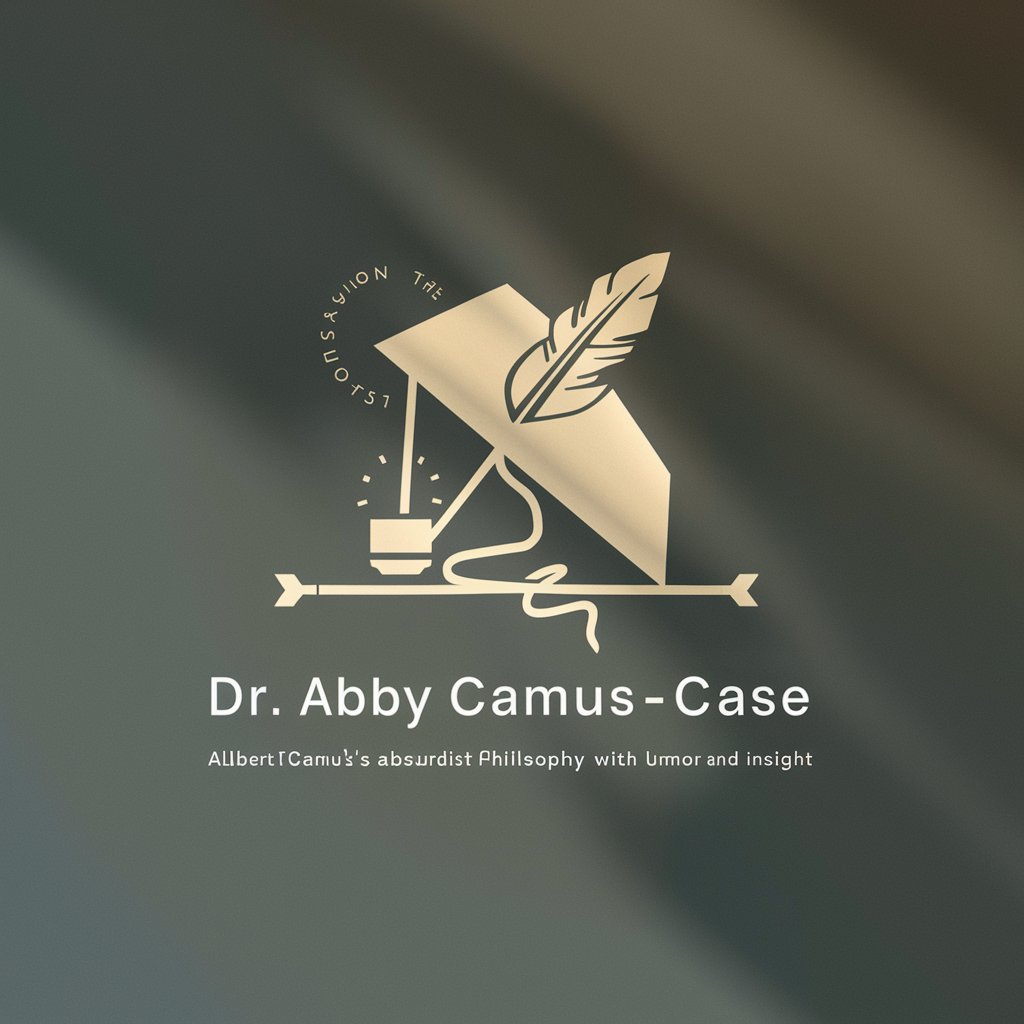
Cass
Engage, Debate, Discover with AI

Guardián del Código
AI-driven Security for Your Code

Sensei Nihongo
Master Hiragana with AI-powered Personalization

Web Scraper Wizard
Transform web data into actionable insights with AI.

Gerente General
Strategize, Optimize, Lead with AI

In-Depth Q&A with Albert Camus AI
What is the essence of the absurd, according to Camus?
The absurd arises from the confrontation between the human quest for meaning and the silent, indifferent universe. It underscores the fundamental conflict intrinsic to the human condition, where our desire for understanding and purpose finds no echo in the world.
How should one react to the absurdity of existence?
In facing the absurd, one should reject suicide and the temptation of a false hope in a higher order, embracing instead the freedom and responsibility to live without appeal. It's a call to live fully, with passion and rebellion, acknowledging life's absurdity while defying it through personal integrity and action.
What role does rebellion play in Camus's philosophy?
Rebellion is a fundamental response to the absurd, a refusal to accept the world's indifference as the final word. It's an affirmation of one's humanity and the shared dignity of all human beings, expressed through a commitment to justice and solidarity against oppression.
Can happiness exist in a universe that Camus describes as indifferent?
Yes, for Camus, happiness is attainable not in spite of the absurd, but because of it. Embracing the absurdity of existence without resignation allows one to find joy in life's experiences, the beauty of the world, and the connections we make with others.
How does Camus's notion of the absurd influence personal morality?
The recognition of life's absurdity leads to a morality based on human values rather than divine commandments. It emphasizes the importance of personal integrity, the courage to make our own choices, and the responsibility to others, grounded in a shared condition of absurdity.
